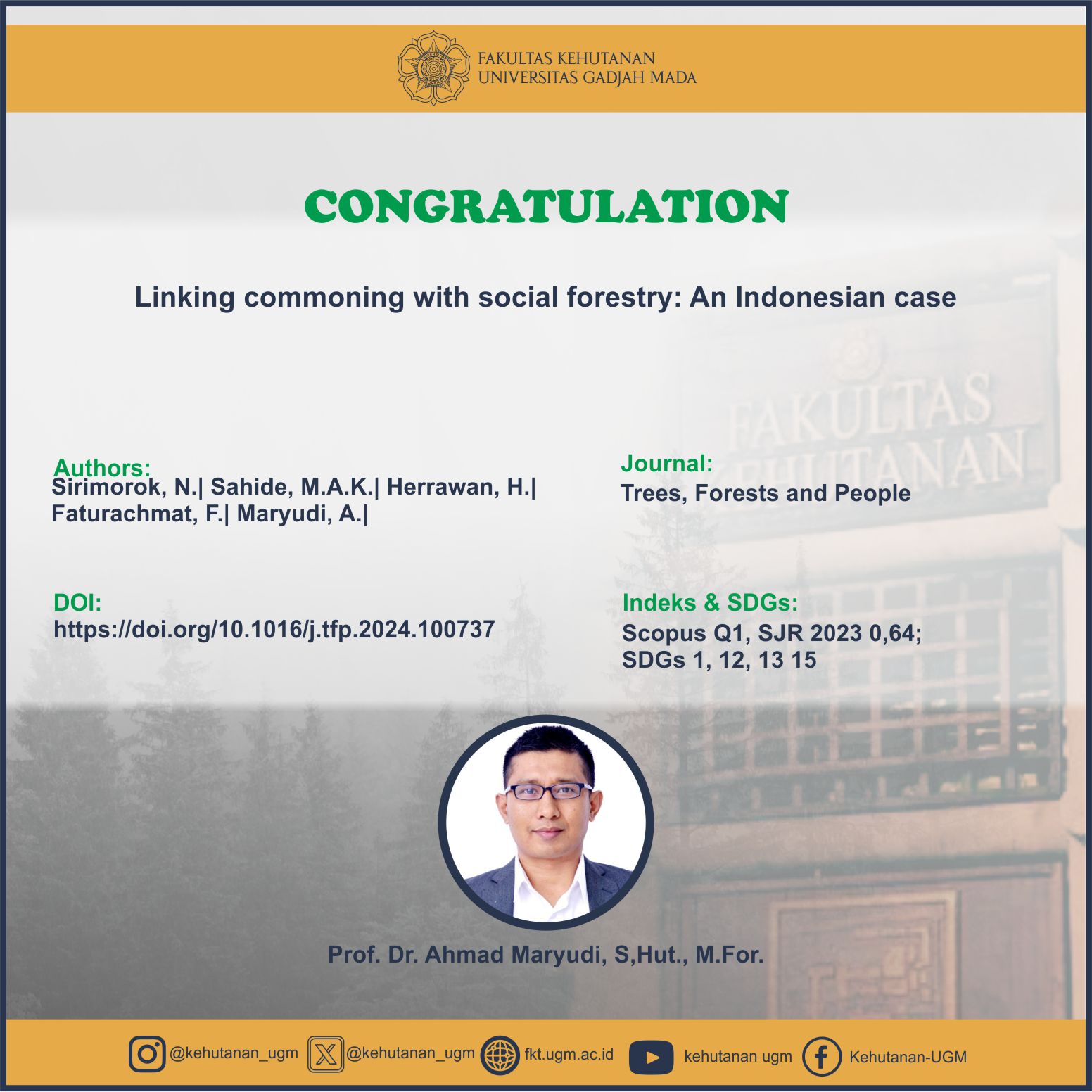
Abstract
Social forestry schemes aimed at both conservation and land redistribution for smallholders surrounding the Indonesian state forests. However, the results so far are mixed at best, with limited areas having been granted to the intended beneficiary groups. Several problems appear to be the causes. They range from the domination of administrative and managerial aspects of the scheme, lack of decision-making participation of the intended beneficiaries, to the program granting marginal land and/or located far from the smallholder villages. Consequently, smallholders are unenthusiastic about the schemes, conflict ensuing at the local level, and the marginalized groups are excluded from accessing the schemes. Focusing on a case from two smallholder groups granted with a Community Forestry scheme in a South Sulawesi village, we delve into the ways in which, and the extent to which, the smallholders are actually able to access the social forestry program. Exploring the case through the commoning perspective we examine the unique ways in which the local smallholder groups create specific social relations and governing institutions, through the practice of commoning, that enable them to effectively benefitting from the scheme. We found that through commoning the groups create their own collective local rules, as well as activating informal relations, they were able to develop effective collective management of their plots–that are treated as individual-holding in most other similar groups. These successes hinge on their ability to develop and maintain the commoning practice, utilizing deep local knowledge, and unique historical context around Indonesian social forestry. The case presents a unique way in which smallholders are muddling through the red tapes of formal rules in order to make a successful story that the state scheme intended to achieve.
SDGs:
SDG 1: No Poverty
SDG 12:Responsible Consumption and Production
SDG 13:Climate Action
SDG 15:Life on Land
Link Dokumen:
Download
